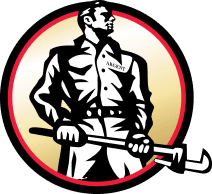Heat Pump Systems Installation & Repair
For those living in moderate climates, heat pumps can be an energy-efficient, financially advantageous alternative to conventional heating and air conditioning systems. The difference between heat pumps and conventional heating and air conditioning systems lies in the fact that heat pumps transfer heat, rather than generate it. Heat pumps are simply acting as a transporter of heat. They move the warmth from one place to another, depending on where warmth is needed. Therefore, a heat pump will transfer warmth into a home during the winter and then will reverse the process and transfer the warmth from inside the home to the outdoors during the summer.
Heat pumps are gaining in popularity with homeowners living in moderate climates. The reason lies primarily in the efficiency and financial gains associated with transferring rather than generating heat. This article will explore the advantages and disadvantages of heat pumps in more depth after explaining how heat pumps work and outlining the various types of pumping systems.
How Heat Pumps Work
Even on the coolest days, the outside air contains hot energy. It is this energy that is used by heat pumps to heat homes without generating its own heat. A heat pump generally consists of two parts. The indoor unit is referred to as the air handler while the outdoor unit is referred to as the heat pump. A compressor is used to circulate a refrigerant. This refrigerant works by absorbing and releasing the heat as it travels between the indoor and outdoor units.
Types of Heating Pumps
There are six types of heating pumps. Choosing the right pump for a property depends on a number of factors that include the average temperature of the region, the size of the home, the budget a family is working with and the amount of maintenance a homeowner is willing to put into the pump’s upkeep. Below is a brief outline of the six heating pump types.
- Air Source Heat Pumps: By far the most commonly used, air source heat pumps work by drawing air in from the outside. Compression and two copper tubing coils are used to transfer the heat. A liquid refrigerant is used in the outside coil to extract heat from the air. The refrigerant evaporates and passes into the inside coil. The gas then returns to a liquid in order to produce the warmth that is then fed into the home.
- Ground Source Heat Pumps: Also called Geothermal heat pumps, ground source heat pumps utilize solar energy that is stored in the ground or a nearby water source. Since the heat in the earth is generally a more constant temperature than heat in the air, ground source heat pumps produce a significantly higher level of efficiency. However, these pumps are also significantly more expensive to install because heat pipes need to be laid in the ground.
- Hybrid Heat Pumps: As the name suggests, hybrid heat pumps are heat pumps that are combined with another energy source – such as a gas boiler. The combination of the two heat sources provides a more consistent source of warmth at a higher efficiency level.
- Ductless Mini Split Heat Pumps: Ductless mini split pumps are individual units that can be wall mounted and used to heat particular rooms in a building. The obvious advantage is that these pumps do not require duct installation and maintenance.
- Absorption Heat Pumps: These heat pumps are driven by another heat source. This driving heat source could be solar or water heat. Absorption heat pumps are commonly referred to as gas-fired heat pumps.
Advantages and Disadvantages of Heat Pumps
As with all options for heating systems, heat pumps offer a variety of advantages and disadvantages. The primary advantage is the increase in efficiency, while the primary disadvantage is the cost of installation. A more complete list of the benefits and drawbacks of heat pumps is included below.
Advantages of Heat Pumps:
- Safer because of the lack of combustion involved in the heating process
- Less expensive to maintain
- Produces less carbon emissions and has a highly efficient conversion rate of energy to heat
- Less maintenance is required annually
- Provides cooling to homes during the summer
- Offers a long life span, high-reliability levels and steady sources of heat
Disadvantages of Heat Pumps:
- Expensive to install
- Installation is complicated and time-consuming
- Less effective in colder environments
- Requires electricity
Contacting a Heating and Air Conditioning Technician To Install A Heat Pump
For homeowners living in moderate climates, a heat pump offers an inexpensive and eco-friendly solution to a home’s heating and air conditioning needs. Argent is proud to offer Inverter Heat Pump Systems from Daikin, the world’s No. 1 air conditioning company. To speak with an Argent technician about scheduling an installation, call us today at 908-289-1920.


